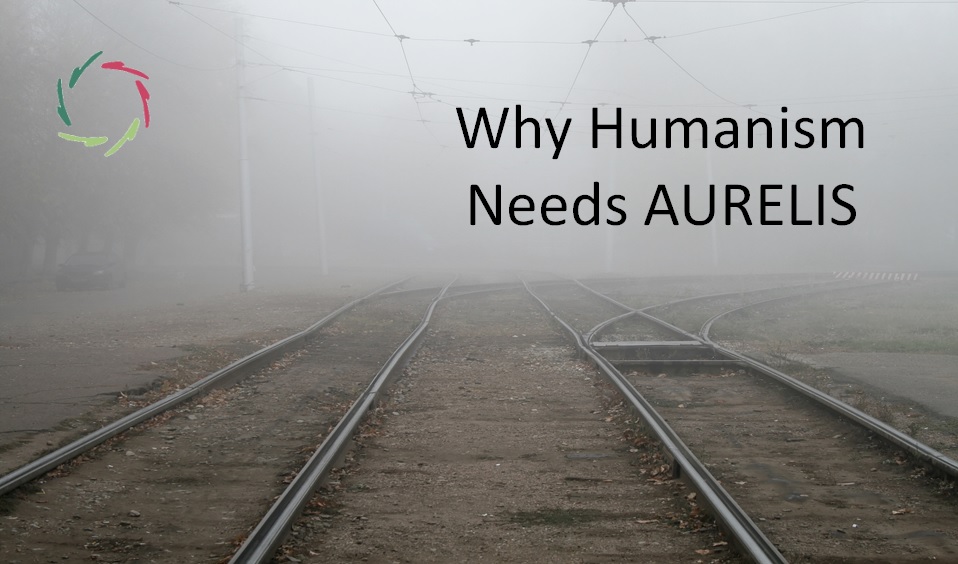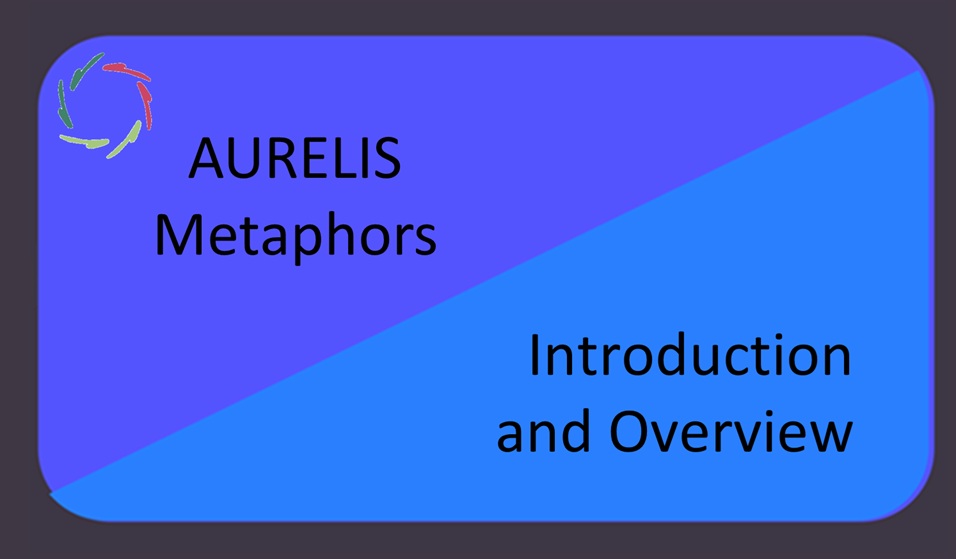Why Humanism Needs AURELIS

I admit: this title is quite highbrow. I need to do some explaining.
[see also: “Humanism with a Vengeance”]
Humanism =
taking human being into account as-is. Not as some organization portrays it if this runs counter to obvious reality, of which science and rationality are pretty good critics, even if not necessarily the only ones. In any case, they pose strong constraints within many domains. For instance, earth, as well as life on earth, indeed does have a history of billions of years. Humans are part of an evolutionary process. Our brains have a lot in common with those of other mammals, etc.
AURELIS =
taking human being into account as-is, including a wealth of knowledge and insights from medicine, psychology, neurocognitive science… that shows human being – mentally – to be much more than one is conscious of. Let’s talk ‘unconscious’ or, as I prefer, ‘subconceptual’ [see: ‘About ‘Subconceptual’]. AURELIS, as you may know, is not only about theoretical insights, but also about implications [see: “Imagine: an AURELIS future”] AND how to practically support yourself and others in all this.
This way, the aim of the blog’s title may become clear.
The subconceptual throws a different light on many man-related matters. Actually… on all man-related matters. How could it be otherwise? Any concrete thought, feeling, motivation, etc. starts at the unconscious / subconceptual level. Also many health-related symptoms are ‘psychosomatic’, this is: with a causal ground, not – of course – in a conscious decision to ‘have this symptom’ but in a subconceptual tension that surfaces as symptom. The latter is a negative realization of a subconceptual urge. To do: AURELIS…
In many cases, striving to solve a problem at the exclusively conceptual level is counter-productive. In healthcare as I just mentioned, attacking a symptom that is itself the surfacing of a deeper need obviously makes an organism (you) ‘scream louder’ from deep inside. [see: “Subconceptual Processing in Health and Healing”]
Many social issues are also ‘symptoms of unmet deeper needs’.
There is no indication to think that the subconceptual level disappears when people are socially involved. On the contrary, subconceptual influence is in such cases probably bigger than ever. Arguably, social issues are at the helm of human evolution towards subconceptual, as well as conceptual complexity. This made us masters in dealing – mostly at unconscious level – with all kinds of social situations. Many social settings are too complex for handling them through mere conscious processing. Thus, we are vulnerable masters in doing so subconceptually.
Also, we do have lots of social, unmet deeper needs, even if through post-rationalization, we look for any ‘rational’ excuse to make ourselves believe that we are in control and even: that we are in conscious control.
E.g. we may not like ‘them’ (immigrants, neighbours…) without really knowing why. Then we post-rationalize for ourselves some reasons why. This happens frequently. Thus, an enemy is created. Next era, a war is waged. It should not be like this.
Any health symptom, aggressively managed, heightens inner aggression, then possibly also outer aggression.
Even, or especially, if the symptom is successfully removed without further taking the person into account. When many people are involved in this, it has an impact on a whole society, at least as far as I see.
Thus, any societal problem that humanism-as-a-movement tries to attenuate, gets heightened in several ways through not properly considering the subconceptual. In analogy to the health domain, it’s even possible that lots of societal solutions are kind of iatrogenic: the cure heightens the disease. E.g. one tries to bring people together (the ‘us’ and the ‘them’), but by doing so, the inner, deeper-level resistance of ‘us’ may compensatorily increase, at both sides.
Equally in analogy to the health domain, it’s important in such cases to see where the social symptom really comes from. Are the causes purely conceptual? Or is much more involved at subconceptual level? According to me, the latter is frequently by far more important than the former. Unfortunately, this is at present hugely underestimated.
“But I have never seen the unconscious level provoke any social mischief!”
This may well be. That’s why it’s called the ‘unconscious’ level. At the other side, one should take care not to see ‘the invisible’ as causing anything that one wants to. ‘Hineininterpretierung’ is not only a long word; it also has a long tail. Where lies the balance? This should be considered in each situation. Not considering it at all, is the worst solution.
Towards considering and managing it, lots of insights, tools and services have already been developed in AURELIS healthcare context, ready for use in other contexts.
I end as I began
naughtily highbrow: either humanism becomes ‘aurelized’ or AURELIS becomes next-level humanism. Ahum… Practically speaking, the result will be more or less the same.
Personally, I am optimistic in this evolution… eventually.
But it does need some ‘make-over’.


